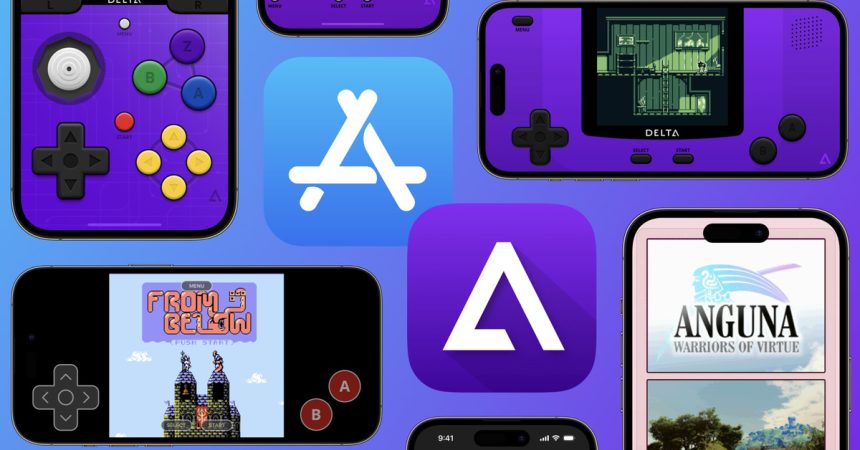The Delta emulator, a popular platform for playing retro video games on iOS devices, has implemented a novel approach to its subscription model, leveraging Apple’s recent policy changes regarding external payment links. Developer Riley Testut has integrated a direct link to the Delta Patreon page within the app, offering users the opportunity to subscribe for exclusive perks and features outside of Apple’s in-app purchase system. This move is not simply an adoption of the new External Purchase Link Entitlement; it’s a strategic protest against Apple’s existing in-app purchase structure, highlighted by the dramatically inflated prices for equivalent subscription tiers offered directly within the Delta app. This “do not buy sale,” as Testut calls it, encourages users to bypass Apple’s payment system entirely and subscribe directly through Patreon.
The core motivation behind this pricing strategy lies in the inherent limitations and perceived disadvantages of Apple’s in-app purchase system for developers like Testut. While Apple takes a 30% cut of all in-app purchases (reduced to 27% with the external link entitlement), Patreon offers greater flexibility and control over aspects like refunds and customer support. This direct relationship with subscribers allows for more streamlined communication and personalized service, something Testut values highly. By making in-app purchases significantly more expensive, Delta actively pushes users towards Patreon, thereby reducing Apple’s revenue share and allowing the developer to retain a greater portion of subscriber income while maintaining direct customer relationships.
This strategic maneuver by Delta represents a significant development in the ongoing tension between app developers and Apple’s App Store policies. The External Purchase Link Entitlement, introduced in response to legal challenges regarding Apple’s anticompetitive practices, was designed to provide developers with more payment options. However, Delta’s implementation goes beyond simply offering an alternative payment method; it actively discourages using Apple’s system altogether by making it financially unattractive. This approach essentially turns the entitlement into a tool for protesting Apple’s payment structure and highlights the developer’s preference for a more direct and less financially burdensome relationship with its user base.
The implications of Delta’s strategy extend beyond simply bypassing Apple’s fees. It signifies a shift in the power dynamic between developers and app store platforms. By leveraging external platforms like Patreon and actively encouraging users to migrate away from in-app purchases, developers regain control over pricing, customer service, and revenue distribution. This empowers them to build stronger, more direct relationships with their communities, free from the constraints and costs imposed by the app store intermediary. This could potentially pave the way for other developers to follow suit, further challenging Apple’s dominance over the app ecosystem and forcing a reevaluation of its existing policies.
The “do not buy sale” implemented by Delta highlights the dissatisfaction some developers feel towards the limitations imposed by Apple’s in-app purchase system, even with the introduction of the external link entitlement. The inflated in-app prices serve as a clear signal that developers are not merely seeking alternative payment options; they are actively seeking to reduce their reliance on Apple’s infrastructure and establish more direct connections with their users. This strategy could potentially reshape the app store landscape by encouraging developers to prioritize external platforms for subscriptions and in-app purchases, ultimately leading to a more decentralized and developer-centric ecosystem.
The long-term consequences of Delta’s approach remain to be seen. Whether other developers will adopt similar strategies, and how Apple will respond to this evolving landscape, will significantly impact the future of the app economy. Delta’s move serves as a powerful example of how developers can leverage new entitlements not just as alternative payment options, but as tools to reshape the relationship between developers, platforms, and users. This bold move may well become a pivotal moment in the ongoing struggle for greater developer autonomy and control within the app ecosystem.



